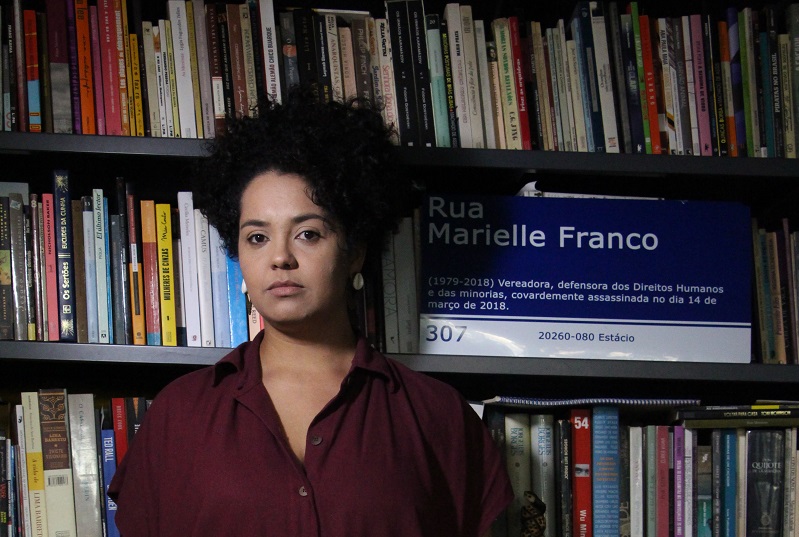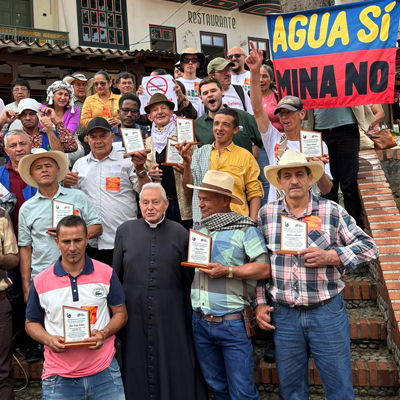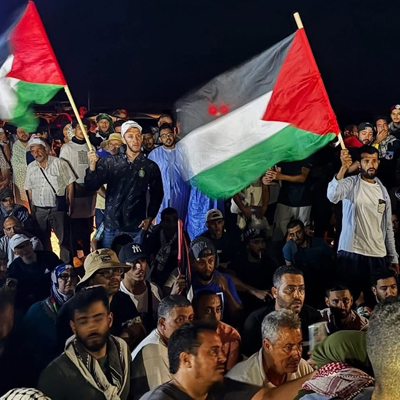Bolsonaro accused at UN session of attacking women journalists
At least 54 attacks were recorded since he took office. Interview with journalist Bianca Santana.
 Bianca Santana.
Bianca Santana.
During the 44th session of the United Nations Human Rights Council, which takes place from 30 June to 17 July in Geneva, Switzerland, journalist Bianca Santana reported how she was personally targeted by the Brazilian President Jair Bolsonaro, by social media on 28 May. This case is one of 54 attacks that organisation Artículo 19 Brasil recorded since Bolsonaro took office on 1 January 2019, an unprecedented number in the recent history of the country.
The reports by journalists who have been attacked by the President or his ministers were supported by over 20 civil society organisations, communication groups and the black movement in Brazil.
Santana addressed the UN council on behalf of these organisations and highlighted that the most recently published report by the UN Special Rapporteur on violence against women, its causes and consequences, focuses specifically on violence against women journalists.
She said:
“In her report, the Rapporteur systematises the tools generally used to shame, discredit and humiliate women journalists.
In May, the President accused me of writing fake news. This attack came in the same week that I wrote an article showing the links between Bolsonaro’s family and friends and the people accused of murdering councilwoman Marielle Franco.
Since Bolsonaro took office, women journalists have been attacked by the President or his ministers at least 54 times, an unprecedented number in the recent history of the country.
This systematic exposure results in massive online attacks by his followers, with concrete consequences for the lives of these journalists, creating an even more hostile environment for women to exercise their freedom of speech and be present in the digital, political and social sphere.
The Brazilian government must ensure a safe environment for women journalists.”
In an interview with Real World Radio, Bianca recalled that in the last week of May, Bolsonaro accused her of writing “fake news”, while the Superior Court of Justice decided that the investigation about the murder of Marielle Franco was not going to be conducted at federal level: a decision against the President’s wishes.
The journalist, who works for outlets like UOL and Gama magazine, highlighted that several of the people arrested over the murder of Marielle Franco are linked to Jair Bolsonaro and his son Flávio, in addition to other people involved in cases of corruption:
Ronnie Lessa, one of the two people arrested accused of murdering the councilwoman, was a friend and neighbour of the current President.
Adriano da Nóbrega was a Police Captain and Chief of the Rio de Janeiro Crime Office. His mother and wife were both employees at the office of Senator Flávio Bolsonaro, and he was apparently repeatedly praised by Flávio. Nóbrega, after having several mobile phones confiscated and stating he feared for his life, was murdered in February 2020.
Chiquinho Brazão, Federal Member of Parliament for the Avante RJ party, and the brother of Domingos Inácio Brazão, a former councilmember and advisor at the Accounts Tribunal in Rio de Janeiro State. Although accused of ordering the murder, he received a diplomatic passport from the President.
Fabricio Queiroz, former advisor of Senator Flávio Bolsonaro, and friend of Jair Bolsonaro for 30 years, was arrested on 18 June in São Paulo as part of an operation investigating a possible case of corruption in the Legislative Assembly of Rio de Janeiro. Queiroz was wanted by the authorities and he was hiding at the house of the President’s lawyer Frederico Wassef, who had claimed he did not know the whereabouts of the advisor.
This is not the first time Bianca Santana was attacked online or threatened or harassed. Last December, after publishing an article with Marielle Franco’s sister Anielle, and demonstrating with the movement of homeless peoples and the Black Coalition for Rights in São Paulo, also exposing cases of police violence, her WhatsApp was hacked and her email account attacked. The journalist even received strange visitors at the Coalition’s office, where she is politically active.
Violence against women journalists aims to discredit their professional career and work. They often receive messages ranging from sexually charged insults and comments to death threats. These attacks intensify when race, gender identity and class intersect. The consequences for their mental health, personal security and work environment are serious.
Bianca Santana’s testimony before the UN was supported by the following organisations: Alma Preta News Agency, Artículo 19, Casa Neon Cunha, Black Coalition for Rights, Cojira-SP – São Paulo´s Journalist Commission for Race Equality, Fenaj – National Journalist Federation, the Marielle Franco Institute, Geledés – the Black Women, Gender and Numbers Institute, IDDH – Human Rights and Development Institute, Vladimir Herzog Institute, Intervozes – Social Communications Collective of Brazil, São Paulo’s Black Women March, the National Network for the Protection of Journalists, Reporters without Borders, the Union of Professional Journalists from São Paulo, SOF – Sempreviva Feminist Organisation, Terra de Direitos, Uneafro Brazil.





